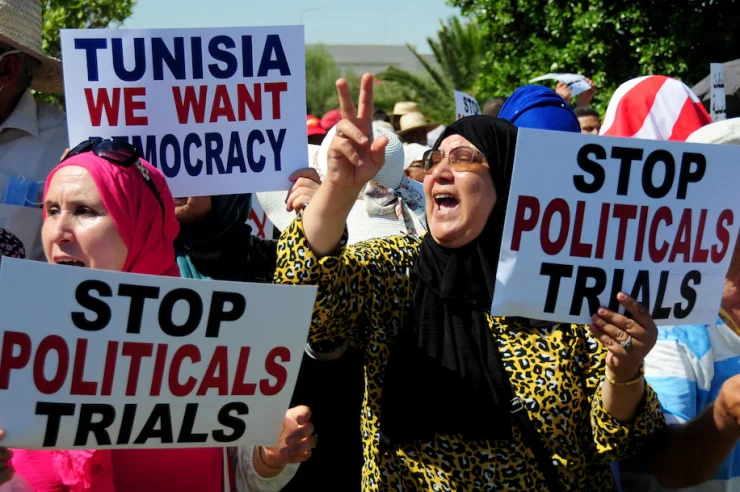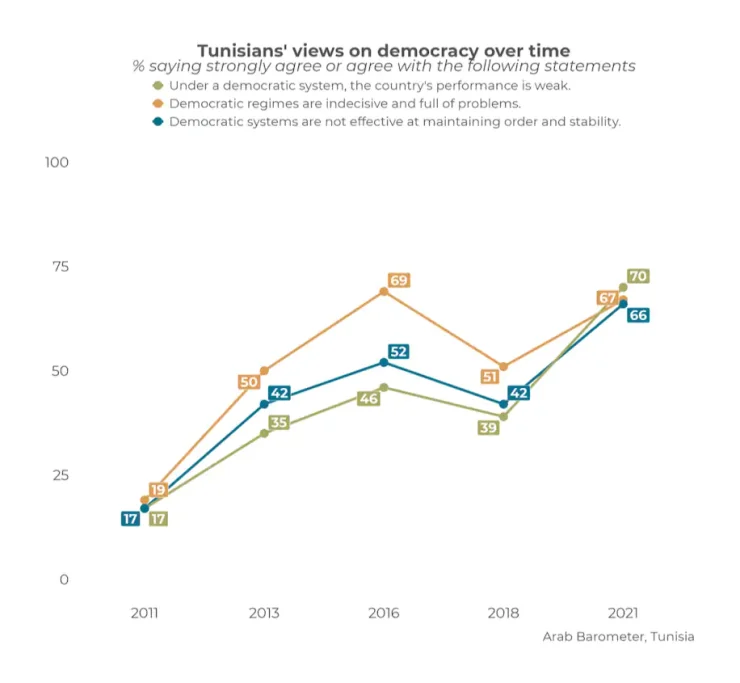That’s what Arab Barometer finds in its latest wave of surveys across 10 countries in the Middle East and North Africa

A decade after the Arab Spring, what do the citizens of Arab nations think about democracy? In its 2021-2022 public opinion survey across the Middle East and North Africa (MENA), Arab Barometer finds that they’re worried that democracy can’t deliver either good politics or stable and healthy economies. At the same time, democracy remains the form of government they would prefer.
The Arab Barometer is the premier academic public opinion survey in MENA, comparable to other regional counterparts such as Afrobarometer and the AmericasBarometer in its scope and methods. A decade ago, at the start of the Arab Spring, we found the that citizens across the region overwhelmingly favored democracy. At the same time, fewer than half in all 10 countries surveyed in the project’s second wave worried that democracy might bring economic weakness, indecisiveness and instability.
In the decade that followed, these views began to change, including in countries that experienced democratic openings. In Tunisia, for example, citizens began to change their minds about democracy. Shortly after the Jasmine Revolution, fewer than 1 in 5 citizens believed that instability (17 percent), indecision (19 percent) and weak economic performance (17 percent) were linked with democracy.
After two years of weak democratic governments, the percentage of Tunisians who held this view had more than doubled for all three measures: instability, 42 percent; indecision, 50 percent; and weak economy, 35 percent. Over the next decade, this perception grew, with at least two-thirds of Tunisians linking each problem with democratic governance.

Arab Barometer has conducted nearly 23,000 face-to-face interviews of citizens age 18 and above across 10 countries to date as part of its seventh wave. Each of these personal interviews are conducted in the respondent’s residence on a variety of topics, including economic, political, religious and political issues. Each country survey has a margin of error of approximately plus or minus two percentage points. Full details are available on our website.



